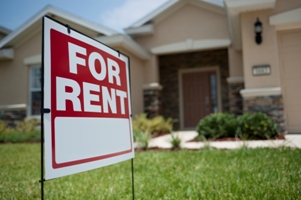The median weekly rent in the Queenstown-Lakes district has crashed down to $550 in June, after reaching a record-breaking high of $800 in January this year, according to the latest Trade Me Rental Price Index.
That means rents in June were down by $210, or 28%, on the median rent (of $760) in June 2019. And that’s the biggest annual percentage drop in seven years.
At the same time, the number of properties available to rent in Queenstown-Lakes rose by 152% on June 2019 – which means tenants have more options to choose from.
Trade Me Property spokesperson Aaron Clancy says the decline in rents is, in fact, the largest annual percentage drop they’ve seen in the district since they started recording rental data.
“With our borders closed, towns like Queenstown-Lakes, which rely on tourists and visitors, have been hit hard by Covid-19 and now we’re seeing this impact the rental market.
“As a result, we’ve seen a lot of landlords drop the price of their rentals dramatically in an attempt to lure tenants.”
The situation is a far cry from what they were seeing pre-Covid, when demand was through the roof and rental prices were climbing rapidly, he says.
“For the first time in a long time, Queenstown-Lakes is a tenants market, with falling rental prices coupled with the increase in available properties.”
Median weekly rents in a number of neighbouring districts also experienced an annual drop. In Wanaka, they were down by 13.5% year-on-year to $550 and Central Otago saw a decrease of 12% to $435.
While the news for Queenstown landlords was not good, Clancy says there was some good news for landlords around the country in the June data.
Demand is up across the country. In June there was a solid year-on-year increase in demand nationwide with the number of enquiries on rentals up by 16%.
Clancy says demand for rental properties across every region was up in June, with Hawke’s Bay (up 34% on last year), Otago (up 35%) and West Coast (up 73%).
“With a rising number of Kiwis moving home from overseas as a result of this pandemic and far fewer leaving the country for their OE or new jobs, we’re still seeing a very strong rental market in many parts of the country.”
Further, the median weekly rent continued its pattern of growth with a 2% increase on June 2019 to $510 and median weekly rents were up in every region in the country too.
Both Auckland and Wellington followed the national trend with the median weekly rent in both regions rising 2% in June when compared to the year prior. The median weekly rent was $570 in the Auckland region and $550 in the Wellington region in June.
But supply is increasing in many places with the number of properties available to rent up by 6% year-on-year in June.
Clancy says there is, however, a disparity between local rental markets on the supply front.
“While supply was up in most regions, Bay of Plenty (-2.9%), Gisborne (-11%), Hawke’s Bay (-12.7%), Marlborough (-14.2%) and Northland (-14.5%) all saw an annual drop in the number of rentals available.”
It was regions in the South Island which saw the largest year-on-year change in supply in June, with massive increases in the supply of available rental properties. For example, the West Coast, Otago and Southland were all up year-on-year, by 75%, 26.6% and 24% respectively.
They believe there are a few factors at play here, Clancy says.
“The dip in tourism and resulting job losses, landlords moving short term accommodation onto the long term market, and people moving regions to find work. Many parts of the South Island rental market are in flux and are going to take some time to find the new normal.”
Meanwhile, it's worth noting that Stats NZ’s latest rental price index shows that June’s rents were up by 0.3% on May and by 0.2% year-on-year nationwide.



 Search
Search
